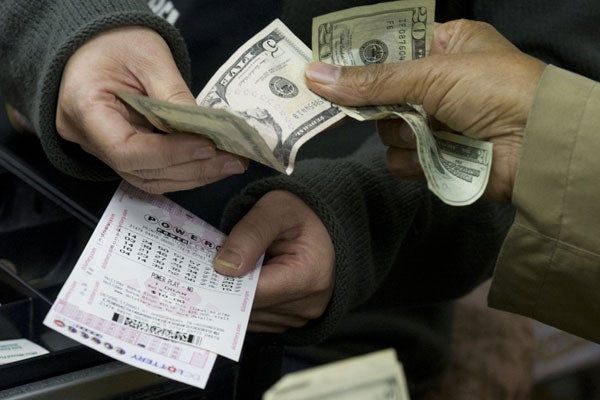A habit of saving money is one of the keys to moving up the economic ladder, alongside stable families and communities, and getting a good education.
The problem is that about a third of Americans save nothing at all, especially those near the bottom of the economic ladder – meaning they are likely to stay at the bottom. Yet at the same time, households with annual incomes below $12,500 actually “invest” an average of about $650 each for their future – the problem is they do so by purchasing lottery tickets.
A culture of Powerball has replaced the habit of savings.
But what if we were to use the same thrill of the lottery as a way of encouraging people to save instead of buying typically worthless tickets? What if banks were to pool together the meager interest they pay and instead used it for prize drawings, with your chances of winning based on the amount you saved? Sound far-fetched? Well it is already happening.
It’s called prize-linked savings.
For instance, a group of Michigan credit unions run “Save to Win” accounts. For every $25 a customer places in a certificate of deposit, he or she gets a chance to win one of 75 monthly prizes of up to $3,750 and an annual prize of $10,000. Other states have been following Michigan’s lead.
>>> READ MORE: Boosting Economic Mobility Through Prize-Linked Savings
Britain has an even bigger version called Premium Bonds. The bonds pay no interest but bond holders are entered in a drawing and winners can become instant millionaires. It’s so popular that one-third of all Britons now own Premium Bonds, equal to $70 billion in savings (adjusting for population size, that would be nearly half a trillion dollars here).
So what’s stopping such thrill-seeking savers over here? As usual: red tape.
State-chartered banks or credit unions need state laws to permit them to offer prize-linked savings. Several states have been following Michigan in making this possible but other state houses need to follow. Meanwhile, federally chartered institutions need exemptions from laws that were intended to thwart money laundering but now hamper them from offering prize-based savings accounts. That would require congressional action.
>>> WATCH: Google+ Hangout on Innovative Ideas to Save Your Money
In a lottery a tiny number of people hit the jackpot and rest lose their money. In prize-linked savings it is also only a tiny number of people who become winners. But the “losers” end up with a boatload of savings. What’s not to like?
For more information, read Heritage’s new report on prize-linked savings.































